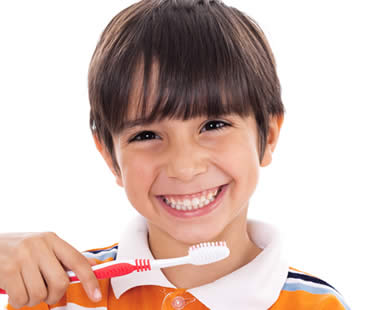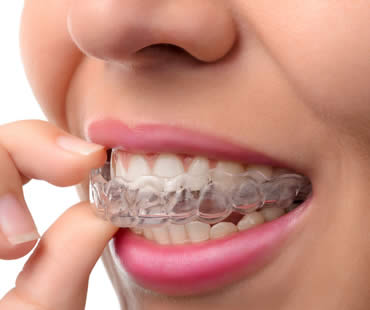
Kids will be kids, and emergencies happen that can affect the mouth. To avoid long-term damage, extensive pain, or unsightly results, it’s important to know what to do in a dental emergency. Let’s learn what you should do when your child has one of the following common oral problems.
Severe toothache:
Look for food stuck between the teeth, and if so try to dislodge it with floss. Clean the affected tooth and rinse the mouth well with warm water. Swollen gums may indicate an infection, which requires a dental visit. Facial swelling can be relieved with cold compresses, but if it accompanies severe pain you should take your child to the dentist or emergency room. Try giving over-the-counter pain reliever, but don’t place the medication directly on the gum or tooth.
Chipped tooth:
If your child chips a tooth, contact your dentist immediately. Fast action can help save the tooth, reduce the risk of infection, and prevent extensive procedures. Have your child rinse with cold water. If you can find the tooth fragment, take it to the dentist in case it can be bonded back in place.
Knocked out tooth:
The first thing to do is locate the missing tooth. Hold it by the crown instead of the root, and rinse it gently. Try replacing the tooth back in the socket, and have your child bite a piece of gauze or cloth to hold it in place until you get to the dentist. If you can’t insert it, place it in a cup of cold milk to take with you. Time is important in saving a displaced tooth, so see your child’s dentist immediately.
Cut lip, tongue, or cheek:
Ensure your child’s teeth are undamaged, and apply firm pressure with a moist washcloth or teabag to the bleeding area. If it doesn’t stop in fifteen minutes, call your child’s dentist or head to the emergency room. If the tongue is bleeding, there’s not much you can do except wait to see if it stops bleeding on its own within fifteen minutes. If not, visit the dentist or emergency room.
If you need a dentist in Lawrence MA contact us today

Metal braces used to go hand-in-hand with teenage years. Those awkward years were made so much worse with the taunts of “metal mouth” or “brace face.” Today, if your teen is dreading those comments, there are alternatives, particularly Invisalign.
Has your teen been told that braces are a necessity? Is he or she fearful of time spent in metal braces? Invisalign could be the solution, providing an “invisible” way to straighten and align crooked teeth.
Not all teens are suited for treatment with Invisalign. The aligners must be worn diligently, up to 22 hours a day, in order to work properly. Teens may be tempted to remove them more often than recommended, leading to far longer treatment time or ineffectual treatment.
Changes in Invisalign treatment are addressing the specific needs of teens with solutions like the blue dot wear indicator, which allows dentists and parents to determine if the teen is wearing the aligner the recommended amount of time.
Power ridges provide the maximum force necessary to exact complex movements in the mouth, including the movement of tooth roots. Because some teens are still in the process of having their teeth erupt, Invisalign aligners can feature eruption tabs or other design elements for teeth that are still in the process of erupting.
Benefits like these allow Invisalign to cater to a teen’s specific orthodontic needs while still providing all of the things that make Invisalign aligners so popular with patients of all ages.
Invisalign makes it possible to remove the plastic aligners while teens are eating or cleaning their teeth. Metal braces can trap unsightly bits of food, leading to a teen being self-conscious. Oral hygiene habits remain far easier with Invisalign than with traditional metal braces. Flossing takes place normally, while flossing with traditional metal braces is very challenging.
If you have questions regarding whether or not Invisalign or traditional metal braces are right for your individual teen, talk to a skilled orthodontist today. Your orthodontist will determine if Invisalign will be the most effective treatment to address your teen’s orthodontic needs.
Schedule your appointment at our Lawrence MA dental office

In the past, replacing lost teeth meant getting dentures or bridges. Even though these offered the best way at the time to restore your mouth’s appearance and function, technology has improved through the development of dental implants. The main drawbacks of bridges and dentures is that they do not feel or look just like real teeth, and it is difficult to chew tough foods. The advantage of implants is that they look and perform so well that you can’t even tell they are not your natural teeth.
Made from titanium, dental implants are screws that are surgically placed directly into your jawbone. They are light and malleable, but durable and strong. The titanium screws are implanted into your jawbone and given time to heal. Once healing is complete, one or multiple crowns are placed on top of the implant to recreate your missing teeth. One implant can hold more than one screw, so it is possible to attach as many crowns as needed to replace your missing teeth.
Dental implants look so much like real teeth that others won’t even be able to tell that you have any artificial teeth. You might even forget about it yourself, as they feel real as well. Since the implants are securely placed in your jaw, they are as strong as real teeth and you are able to chew and bite anything that you would normally eat. Another great thing about implants is that they don’t impact any of your adjacent healthy teeth. While bridges and dentures can sometimes damage neighboring teeth because those teeth are necessary for support, implants avoid this problem. You are left with a fully restored and comfortable smile.
Our dental office is located in Lawrence MA

Are you missing one or more teeth? Dental implants are among the best possible solutions for patients missing teeth. Dental bridges and dentures can fill the gaps left by acute decay or gingivitis, but dental implants have many advantages over these other techniques.
Dental implants are typically made of titanium and serve as an artificial root for a missing tooth. They are fused directly to the jawbone and become an excellent foundation for replacement teeth. They are the best possible substitute for a natural tooth that a dentist can provide.
Dental implant therapy has several benefits, among them:
- Dental implants are very convenient. Bridges necessitate cleaning carefully under and surrounding the bridged tooth, and dentures need to be removed and specially cleaned and can utilize messy adhesives to affix them to your mouth. Dental implants are cleaned exactly as you would clean your natural tooth. Brush and floss normally. There is no slippage or cleaning beneath or between the replacement tooth, which is permanently attached to the gum via the dental implant, which fuses to the bone in a process known as ossification.
- Dental implants look better than other replacement teeth. They are intended to appear and function as your natural tooth would.
- Because they’re fused to your bone, they are more secure than dentures or bridges that can slip in the oral cavity, causing pain, muddled speech and problems eating or drinking. Dental implants are incapable of slippage, leaving you to lead your life with confidence and security.
- Dental implants preserve bone by stimulating the bone in your jaw, something necessary for the health of the bone. Without this stimulation, the bone can begin to shrink.
- Dental implants are very durable and can last for decades, if not for a lifetime, when cared for properly.
- Because dental implants don’t require any alterations to the surrounding teeth, those natural teeth are able to remain intact, lending to your overall good oral health.
We treat patients from Lawrence MA and the surrounding area

Most people will eventually lose one or more teeth. Even with vigilant oral care, accident or injury can cause the loss of a tooth. As we age, simple daily wear can cause damage to your teeth resulting in tooth loss. More commonly, periodontal disease or tooth decay will cause you to lose one or more teeth.
While you may think one missing tooth, especially one that does not actually show, is not a problem, most dentists recommend immediately replacing a missing tooth. Missing teeth are not only unappealing aesthetically, but also cause problems with your bite and speech. More critically, missing teeth can cause a chain reaction that results in more missing teeth. Because teeth shift to fill the space created by the missing tooth, those teeth become loose and may eventually fall out.
Another problem caused by missing teeth is jaw bone loss. The pressure of tooth roots into the bone cells keeps them from dissolving. If the root is missing, the bone cells die and the bone disintegrates. The loss of jaw bone results in facial collapse, giving you a caved in and much older appearance. Bone loss also causes remaining teeth to become loose and fall out.
One of the best options for replacing lost teeth are dental implants. The placement of dental implants and tooth restorations can prevent the bone loss that results from missing teeth. Not only do dental implants restore the look of your natural teeth, they also provide the function and feel of your original teeth. Dental implants allow you to return to eating and speaking normally, and return your smile to its natural glory. To find out if dental implants are a viable solution to your missing teeth, contact your dentist for an examination and evaluation. With dental implants you can restore the look, feel and function of your natural smile.
If you need a dentist in Lawrence MA contact us today

Dental implants are used to replace individual or missing teeth or to anchor loose dentures. For many patients with these issues, traditional dental implants may not a viable option. For example, a patient who does not possess adequate bone levels to anchor the implants would not be a good candidate for traditional dental implants. With mini dental implants, the bone required to anchor the implant successfully is much less.
Thanks to advances in implant dentistry, these patients have other options. Mini dental implants have emerged as an attractive choice for cases that are not conducive to the placement of traditional implants. For the patient who has inadequate bone, the bone required to successfully anchor mini dental implants is much less. Unlike traditional implants, the placement procedure for mini dental implants is a minimally invasive procedure that can be completed in one appointment by a specially trained general or family dentist. Because the procedure is less involved, the pain and length of recovery is greatly diminished.
Patients who have existing health conditions that would preclude them from more invasive surgery may find mini dental implants an extremely appealing option. Mini implants are also a perfect choice for restoring one missing or damaged tooth. Should implant failure occur, grafting procedures would not be necessary because of the small size with mini dental implants.
Most importantly, mini dental implants maintain the look, feel and function of your natural teeth. While you have to wait months for traditional implants to fuse with the bone, mini dental implants are ready for immediate use. Talk to your dentist to determine if mini dental implants would be a good option for your dental restorations and get ready to face the world with a confident new smile.
Our dental office is located in Lawrence MA










